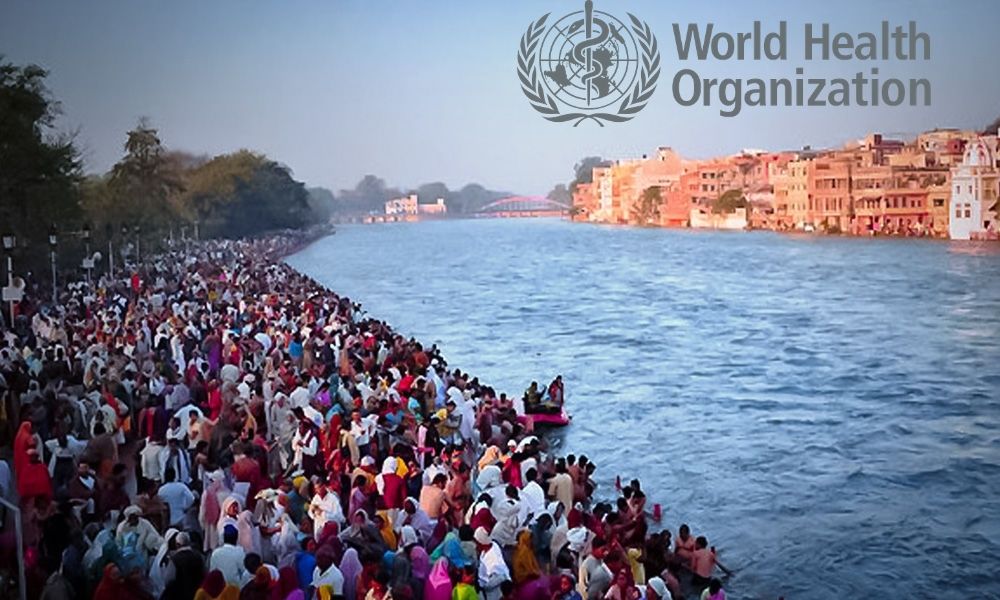
Image Credit: TV9 Marathi
'Religious, Political Rallies Accelerated Coronavirus Transmission In India': World Health Organisation
Writer: Rakshitha R
Rakshitha an engineer turned passionate journalist with an inclination for poetry, creative writing, movies, fiction, mountains and seclusion. Not a part of the social process but existential.
India, 13 May 2021 9:03 AM GMT
Editor : Ankita Singh |
A literature lover who likes delving deeper into a wide range of societal issues and expresses her opinions about the same. Keeps looking for best-read recommendations while enjoying her coffee and tea.
Creatives : Rakshitha R
Rakshitha an engineer turned passionate journalist with an inclination for poetry, creative writing, movies, fiction, mountains and seclusion. Not a part of the social process but existential.
The preliminary analyses conducted by the WHO using sequences submitted to GISAID suggested that B.1.617.1 and B.1.617.2 have a substantially higher growth rate than other circulating variants in India, suggesting potential increased transmissibility.
A recent risk assessment of the COVID-19 crisis in India by the World Health Organisation (WHO) has found that the "resurgence and acceleration" of the virus transmission had several causes including "religious and political mass rallies which increased social mixing."
It also said that the exact contributions of each of these factors on increased transmission in India are not well understood, reported Economic Times.
In India, 'Kumbh Mela'- the world's largest religious congregation was held recently in Uttarakhand. This apart, several political rallies were conducted by leaders in the wake of assembly elections in various states.
The organisation, in its COVID-19 Weekly Epidemiological Update, published Wednesday, May 11, said that the viruses in the B.1.617 lineage were first reported in India in October 2020.
The resurgence in COVID-19 cases and deaths in India has raised questions on the potential role of B.1.617 and other variants (eg: B.1.1.7) in circulation, WHO said in its update.
The WHO also said that approximately 0.1% of positive samples in India have been sequenced and uploaded to GISAID (Global initiative on sharing all influenza data) to identify SARS-CoV-2 variants. GISAID gives open access to epidemic and pandemic virus data.
The United Nations agency also predicted that the B.1.1.7 and B.1.612 sublineages may have increased the COVID-19 cases reported in the country.
"Since the identification of these variants through late April 2021, B.1.617.1 and B.1.617.2 accounted for 21% and 7% of sequenced samples from India," the WHO update said.
The preliminary analyses conducted by the WHO using sequences submitted to GISAID suggested that B.1.617.1 and B.1.617.2 have a substantially higher growth rate than other circulating variants in India, suggesting potential increased transmissibility.
According to WHO, India accounts for 95% of COVID-19 cases and 93% of deaths due to the disease in the South-East Asia region.
Also Read: Presence Of Variants, People Going Out Led To Youth Getting More Affected, Says ICMR Chief
 All section
All section














